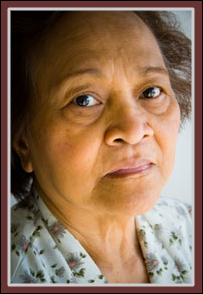Preventing elder abuse!
We can help reduce the incidence of elder abuse, but it’ll take more effort than we are making now. Preventing elder abuse means doing three things:
- Listening to seniors and their caregivers
- Intervening when you suspect elder abuse
- Educating others about how to recognize and report elder abuse
 What you can do as a caregiver to prevent elder abuse
What you can do as a caregiver to prevent elder abuse
If you’re overwhelmed by the demands of caring for an elder, do the following:
- Request help, from friends, relatives, or local respite care agencies, so you can take a break, if only for a couple of hours.
- Find an adult day care program.
- Stay healthy and get medical care for yourself when necessary.
- Adopt stress reduction practices.
- Seek counseling for depression, which can lead to elder abuse.
- Find a support group for caregivers of the elderly.
- If you are having problems with drug or alcohol abuse, get help.
And remember, elder abuse helplines offer help for caregivers as well. Call a helpline if you think there is a possibility you might cross the line into elder abuse.
What you can do as a concerned friend or family member
- Watch for warning signs that might indicate elder abuse. If you suspect abuse, report it.
- Take a look at the elder’s medications. Does the amount in the vial correspond with the date of the prescription?
- Watch for possible financial abuse. Ask the elder if you may scan bank accounts and credit card statements for unauthorized transactions.
- Call and visit as often as you can. Help the elder consider you a trusted confidante.
- Offer to stay with the elder so the caregiver can have a break — on a regular basis, if you can.
How you can protect yourself, as an elder, against elder abuse
- Make sure your financial and legal affairs are in order. If they are not, enlist professional help to get them in order, with the assistance of a trusted friend or relative if necessary.
- Keep in touch with family and friends and avoid becoming isolated, which increases your vulnerability to elder abuse.
- If you are unhappy with the care you are receiving, whether it is in your own home or in a care facility, speak up. Tell someone you trust and ask that person to report the abuse, neglect, or substandard care to your state’s elder abuse helpline or long term care ombudsman, or make the call yourself.
Finally, if you aren’t in a position to help an elder personally, you can volunteer or donate money to the cause of educating people about elder abuse, and you can lobby to strengthen state laws and policing so that elder abuse can be investigated and prosecuted more readily. The life you save down the line may be your own.

 Website Management
Website Management